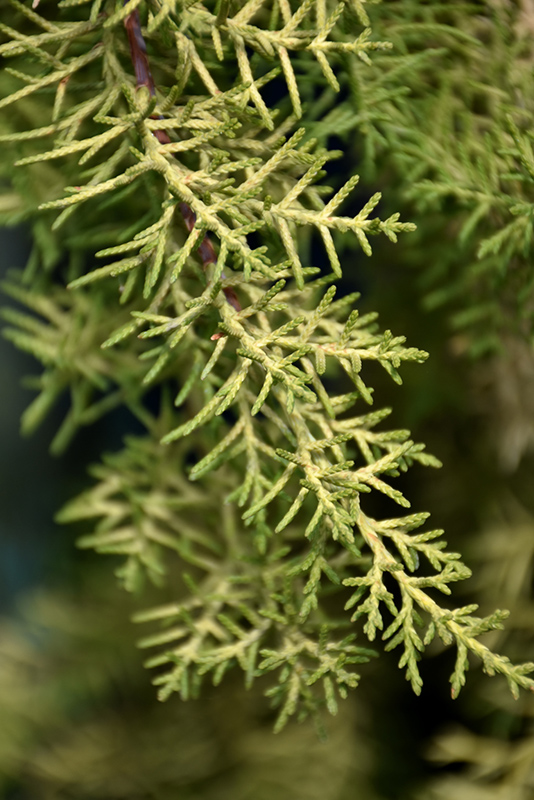Shonnard’s Nursery
Plant Finder Tool
Limelight Arizona Cypress
Cupressus arizonica 'Limelight'
Height: 20 feet
Spread: 5 feet
Sunlight:
![]()
Hardiness Zone: 6b
Other Names: Cupressus arizonica var. glabra
Description:
A narrowly conical, upright variety, featuring soft, dense foliage that glows yellow and lime green; use as a solitary accent, or group as a privacy screen; vigorous and fast growing
Ornamental Features
Limelight Arizona Cypress is primarily valued in the landscape for its distinctively pyramidal habit of growth. It has attractive buttery yellow-variegated lime green foliage which emerges yellow in spring. The threadlike sprays of foliage are highly ornamental and remain lime green throughout the winter.
Landscape Attributes
Limelight Arizona Cypress is an open evergreen tree with a strong central leader and a distinctive and refined pyramidal form. It lends an extremely fine and delicate texture to the landscape composition which can make it a great accent feature on this basis alone.
This is a relatively low maintenance tree, and should not require much pruning, except when necessary, such as to remove dieback. It has no significant negative characteristics.
Limelight Arizona Cypress is recommended for the following landscape applications;
- Accent
- Hedges/Screening
- General Garden Use
Planting & Growing
Limelight Arizona Cypress will grow to be about 20 feet tall at maturity, with a spread of 5 feet. It has a low canopy with a typical clearance of 1 foot from the ground, and is suitable for planting under power lines. It grows at a fast rate, and under ideal conditions can be expected to live for 60 years or more.
This tree should only be grown in full sunlight. It prefers dry to average moisture levels with very well-drained soil, and will often die in standing water. It is considered to be drought-tolerant, and thus makes an ideal choice for xeriscaping or the moisture-conserving landscape. It is not particular as to soil pH, but grows best in sandy soils. It is somewhat tolerant of urban pollution. This is a selection of a native North American species.

